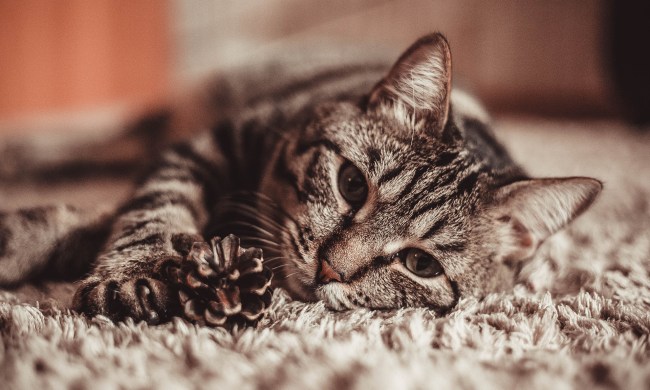Current and prospective pet parents often talk about dog breeds. Some, like Labrador Retrievers, are affectionate and love physical activities like fetch and swimming. Chihuahuas are spirited and love exercising and lounging in our lap.
We don’t necessarily talk about cat breeds in the same way. Cats are cats, right? Not necessarily. There are more than 40 cat breeds, including Siamese cats, Maine Coons, and American Shorthairs. They have distinct looks, grooming needs, personalities, and unfortunately, increased risks of specific health problems.
Of course, every cat is unique and may not have every personality trait their breed is known for, but reading up on breeds before adopting a kitten is a good idea. What kitten breed should you get? It depends on various factors, including your lifestyle and home setup. Here’s what to know before you welcome a new furry friend into your home.

How to choose a kitten
Choosing the right kitten is a big decision. You’re bringing home a new best friend who will rely on you for food, shelter, and companionship, potentially for more than a decade (and maybe two decades). Here are some factors to consider before deciding on “the one.”
Research breeds
Breed is not the be-all and end-all determining factors of a cat’s personality, health, or needs. However, it can give you a feel for what to expect. For example, long-haired kitties will likely need more grooming than short-haired ones. Maine Coons are large cat breeds and might require a high-protein diet. Understanding these needs can help you figure out if you have the time and budget to care for a specific type of cat.
Lifestyle
The American Veterinary Medical Association (AVMA) recommends thinking about how you live and what type of cat would do best in your home. For example:
- After accounting for work and your social life, do you have time in your schedule to dedicate to a cat that craves attention?
- Do you have lots of space for an active kitten to play, and when they grow into an adult cat?
- Who will care for your cat if you are away or sick?
- Do you have other animals or children in the home that the cat will have to, at the very least, peacefully co-exist with?
Personality
Logistics aside, you’ll want to bring home a kitten who will be a forever friend. Personality plays a huge role. Ask yourself:
- Would you prefer a high-energy cat who loves to play or a more laidback one?
- Are you hoping for an independent feline or one who loves curling up in your lap whenever possible?
- Do you want to be able to show your kitty off when you entertain guests or are you cool if they head up to their cat cave when you have company?
Health
Caring for a special-needs cat can be very rewarding. However, often when someone adopts a kitten, they’re looking for one with a clean bill of health. It’s OK if that’s what you desire. According to the AVMA, signs of a healthy cat include:
- Bright eyes
- A shiny coat
- Not too thin or overweight
- No nasal discharge
- No diarrhea
A vet on staff can also give you information on health issues the specific breed of kitten you are looking at may have down the road.

But really: What kitten breed should you get? This tool helps
Going in with an idea of what kitten breed would be best for your lifestyle can help you narrow down your choices. Purina has a short, simple selector tool that can help you learn more about your preferences and find your perfect match.
The tool asks you a series of questions about your preferences for a cat. For example:
- How energetic would your cat be? (Relaxed, moderate, or playful)
- How vocal would your cat be? (Rarely makes a peep, very vocal, or occasional meowing)
- What personality traits would you prefer? (Playful, good with other pets, independent, good with children, calm, and affectionate).
Once you complete the quiz, Purina will recommend a cat breed for you based on your answers. Consider it your matchmaker, but for a cat.
Choose your cat breed wisely
There are more than 40 cat breeds out there, and each has unique traits and needs. Learning more about the different cat breeds can help you choose the right kitten for you. That said, the breed isn’t the only factor you’ll want to consider when choosing a cat. Remember, no two cats are alike, even if they are the same breed. Some are more active than others. Some kitties are highly social, and others are shy. Considering your lifestyle and personality preferences is important before choosing a kitten. Many shelters and breeders will allow you to meet a kitten before deciding to bring them home. These meet-and-greets will give you a better idea of whether or not a cat is the best fit for your home than any breed description will. Purina’s breed selector tool will recommend a breed, but it is best used in conjunction with all your other preferences.



